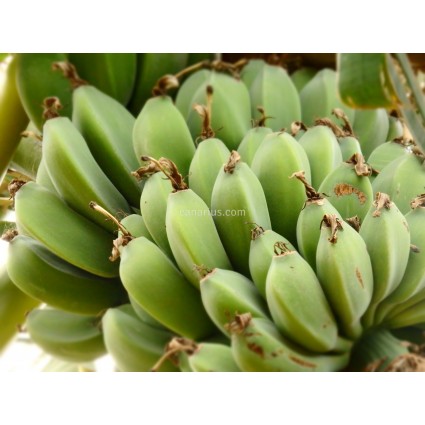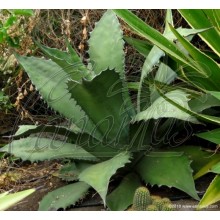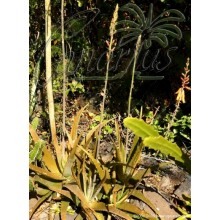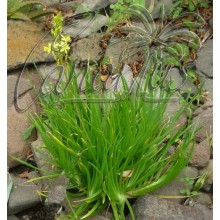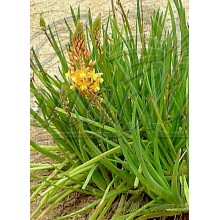Musa 'Lep Chang Kut' - Elephant's toe Banana
Distinct hardy edible banana from mountain regions of NE India, known from at least Thailand, Vietnam and the Philippines. Its Thai name means Elephant's toe Banana. It is very uncommon in cultivation and possibly one of the hardiest to drought and cold. White wax coats much of the pseudo-stem.
Neu
This impressive banana tree is known from at least Thailand, Vietnam and the Philippines. Its Thai name means Elephant's toe Banana, 'Kluai Lep Chang Kut', because of the shape of the fruits. The plant is stout and tall. It has a distinct flavour and it is also supposed to be extremely hardy to cold and drought, because it is one of the few existing "BBB bananas". In fact, 'Kluai Lep Chang Kut' is a rare "triploid BBB hybrid" of the cold- and drought-hardy Musa balbisiana (B), with no genes from the cold-sensitive Musa acuminata (A). We do not know how will it perform in the Mediterranean, but it is going to be one of the frost-hardiest of all edible bananas. Be sure that here in Tenerife it grows many new leaves troughout the coldest months, while many other bananas do not. The plant is robust, with distinct white-glaucous waxy pseudostems. Flower bracts are tipically "balbisianesque" and fruits are somehow squared, grey-green when unripe... just like an elephant's toe!
What do we ship?
We ship a stout rooted sucker, not a potted plant. You will receive it with the corm wrapped in a bag with moist sphagnum or perlite.
In spring and occasionally in other seasons, suckers may not have roots. In this case, suckers are easy to root if temperatures are kept between 20 and 30 C.
| Anbau | Innenanbau |
| Herkunft der Arten | Asien |
| Präsentation | Freiliegende Wurzeln |
| Maximale Größe | 300cm und mehr |
| Botanische Familie | Musaceae |
| Lichtbedürfnis | Sonne |
| Mindesttemperatur im Winter | -5 ºC bis 5 ºC |
| Pflanzentyp | krautartig |
| Pflegebedürfnis | Blumentopf |
| Wuchsform | Rhizomen |















